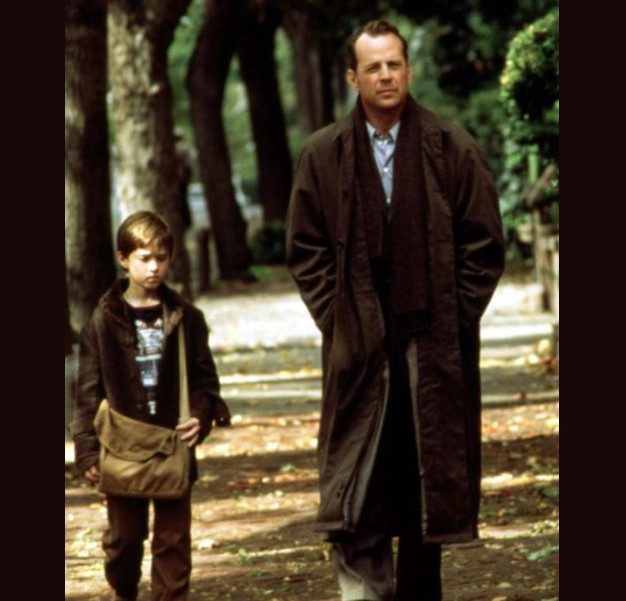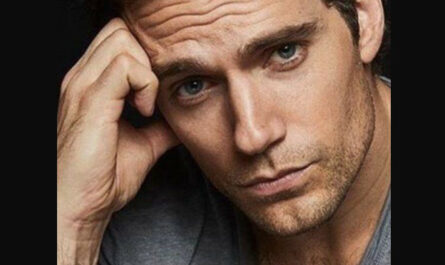Bruce Willis, acclaimed actor and Hollywood icon, delivered a haunting performance in the psychological thriller “The Sixth Sense.” While there’s no definitive evidence linking his personal life to his portrayal of Dr. Malcolm Crowe, there are intriguing parallels that suggest a deeper connection between Willis’s life and the character he brought to life on screen. In this article, we explore the hidden link between Bruce Willis’s life and his role in “The Sixth Sense.”
1. Fatherhood: A Source of Empathy and Understanding
In 1988, Bruce Willis welcomed his first child into the world, marking the beginning of his journey into fatherhood. By the time he filmed “The Sixth Sense” in 1999, Willis had already spent over a decade navigating the joys and challenges of raising children. Fatherhood can profoundly impact an individual’s perspective, instilling qualities of empathy, compassion, and a deeper understanding of the complexities of human relationships.
In “The Sixth Sense,” Willis portrays Dr. Malcolm Crowe, a child psychologist who forms a deep connection with a troubled young boy who claims to see ghosts. The nuances of Willis’s performance suggest a level of empathy and understanding that may have been influenced by his experiences as a father. His ability to connect with the young protagonist, played by Haley Joel Osment, reflects a genuine understanding of the emotional dynamics between adults and children.
2. Vulnerability: Embracing the Complexity of Human Emotion
Bruce Willis is perhaps best known for his roles as tough action heroes, but “The Sixth Sense” offered a departure from this archetype. As Dr. Malcolm Crowe, Willis portrays a character grappling with his own inner demons and past traumas. The vulnerability and introspection displayed by Willis in this role hint at a deeper emotional resonance that may have been informed by his own life experiences.
Fatherhood often requires individuals to confront their own vulnerabilities and insecurities as they navigate the complexities of parenting. Willis’s portrayal of Dr. Crowe’s struggle to come to terms with his past failures and reconcile with his own sense of self reflects a depth of character that goes beyond the typical Hollywood portrayal of masculinity. It’s possible that Willis drew upon his own experiences of vulnerability and introspection as a father to imbue Dr. Crowe with authenticity and depth.
3. Speculative Connection: Seeing and Understanding the Unseen
“The Sixth Sense” revolves around the central theme of seeing and acknowledging the unseen. While this primarily manifests as the ability to see ghosts in the context of the film, some fans speculate that it could also symbolize the challenges of understanding and connecting with children, particularly those who may be experiencing unseen struggles or difficulties.
As a father, Bruce Willis may have grappled with the challenge of understanding and connecting with his own children on a deeper level. The theme of empathy and the ability to see beyond the surface may have resonated with Willis’s own experiences of parenting, influencing his portrayal of Dr. Malcolm Crowe’s journey to connect with the young boy haunted by his supernatural abilities.
Conclusion: Exploring the Depths of Bruce Willis’s Performance
While there’s no definitive evidence linking Bruce Willis’s personal life to his portrayal of Dr. Malcolm Crowe in “The Sixth Sense,” the parallels are undeniable. Fatherhood, vulnerability, and the theme of seeing and understanding the unseen all hint at a hidden link between Willis’s life and his character in the film.
Ultimately, whether Willis’s personal life directly influenced his performance is a matter of speculation and interpretation. However, the depth and authenticity of his portrayal of Dr. Crowe resonate with audiences on a profound level, inviting us to explore the hidden depths of human emotion and connection. As we revisit “The Sixth Sense,” we are reminded of the power of empathy, understanding, and the unseen forces that shape our lives.



